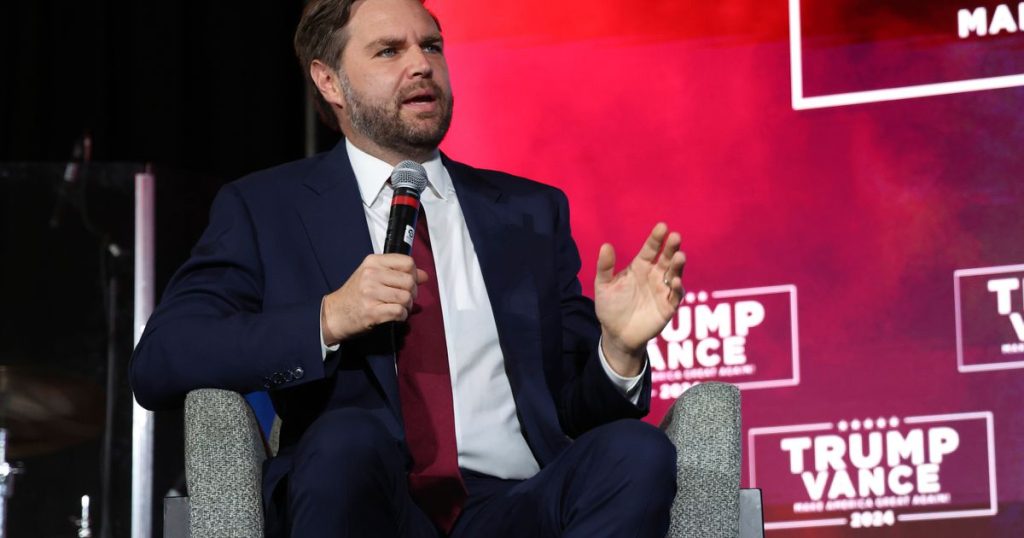JD Vance spoke at an event hosted by Christian “apostle” Lance Wallnau, who believes Trump will save America from Kamala Harris sent by the devil. The event, part of the Courage tour, a neo-Charismatic Christian revival, focused on encouraging evangelicals to vote for Trump and participate in the election process. Vance’s speech reiterated his campaign talking points, blaming the fentanyl crisis on border laws and making baseless claims about education and encouraged voting in the upcoming election. The association with Wallnau shows the Trump campaign aligning with anti-LGBTQ extremism pushing for a Christian theocracy.
Wallnau, a key figure in the “stop the steal” movement, has made extreme statements comparing Trump to King Cyrus and accusing Harris of using witchcraft during the televised debate with Trump. He has been outspoken in his misogyny, calling Harris the “spirit of Jezebel” and claiming she was sent by Satan to take out Trump. Wallnau has a history of derogatory comments against the LGBTQ community, particularly trans individuals, referring to them as the “trans Taliban” and making disparaging remarks about Pride flags and gay individuals. His belief in the New Apostolic Reformation includes the idea of modern-day apostles and prophets who have the power to heal, with a mandate for Christians to conquer societal influences in preparation for Christ’s return.
Attendees at the event, like David Bartels, traveled from Harrisburg to pray and intercede for Trump’s presidency. Bartels, who claims to have prophetic powers, believes that miracles will occur in relation to the election and that more members of the Republican Party will witness these miracles and acknowledge the existence of God. This fervent support for Trump and the Republican Party is indicative of the intense loyalty and belief in divine intervention among some evangelical Christians. The event highlighted the intersection of religion, politics, and conspiracy theories in the current political climate, with extreme views and anti-LGBTQ sentiments being openly embraced.
The event at the Monroeville Convention Center showcased the deep ties between conservative Christianity and politics, with Wallnau and Vance aligning with a belief in Christian theocracy and the role of religion in shaping government policies. The merging of evangelism with political campaigns underscores the influence of religious beliefs on voters and the power of charismatic leaders like Wallnau in shaping political discourse. The reliance on prophecies and miraculous interventions to shape the outcome of elections speaks to a broader trend of religious extremism in American politics, where faith and politics intersect in ways that often result in discrimination and exclusion of marginalized groups.
Overall, the event highlighted the dangerous consequences of mixing extremist religious beliefs with political campaigns, as seen through Wallnau’s anti-LGBTQ rhetoric and accusations against Harris. The fervent support for Trump, based on prophecies and divine interventions, raises questions about the influence of religion on public policy and the actions of elected officials. The alignment of Vance with Wallnau’s views underscores the troubling trend of right-wing extremism in the Republican Party and the potential impact on LGBTQ rights and other marginalized communities. As the election approaches, the intense focus on religious prophecy and miracles in shaping political outcomes signals a significant shift towards a more radical and exclusionary approach to governance.












